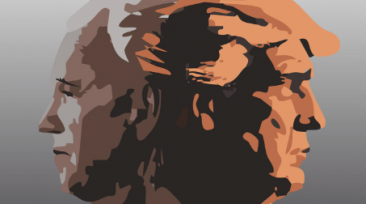The end of the dollar’s reign: thinking the unthinkable

A change in the international monetary paradigm is undeniably underway. Will we even be able to think it through?
This reflection comes from the latest GEAB Café, an open conversation that brings together GEAB editorial staff and subscribers every month. The question “Growth or Dollar: will America have to choose?” left us with more questions than answers, and one certainty: more than ever before, it is necessary to think the unthinkable.
As our regular readers know, our publication was founded on the observation that the fall of the ‘Washington Wall’ was the logical continuation of the fall of the ‘Berlin Wall’ that marked the end of the Soviet empire. Although the ‘American empire’ emerged victorious from this confrontation, this does not mean that it is eternal. This led us, from our first issue in January 2006, to ask the question: what will the Washington Wall be and when will it fall? Our analysis led us to consider the dollar as the Washington wall, the main asset of American international power. Since then, we have never ceased to observe/anticipate each new crack in the monetary edifice, any collapse of which would signal a global catastrophe.
This is the daily occupation of our editorial team that has been producing our monthly bulletin for more than 15 years now. And yet, the US currency is still holding up. After writing that the subprime crisis would be the death knell for the greenback, we have distanced ourselves somewhat from this analysis in subsequent years. The recent events following the Covid-19 crisis are irresistibly pushing us to come back to it, with all the humility of someone who has been wrong in the past (let those who have never written anything but impeccably accurate truths cast the first stone).
The most recent facts, the current trends, the balance of power at work every day bring us resolutely closer, we anticipate, to a paradigm shift in the international monetary system that will lead to a decrease in the influence of the dollar on the international monetary, and therefore geopolitical, scene.
As a weak signal of this trend, the Fed is currently experiencing unprecedented internal quarrels (“affairs” around governors, questions about Powell’s reappointment…) in a stormy context. Its leaders do not know exactly how to get out of the QE spiral while inflation is well and truly back; the US-Saudi relationship, the foundation of the petrodollar, is openly questioned; crypto-currencies are becoming more and more established in the financial landscape; every central bank of international stature is working on a digital currency project, …
And now what? Is a sudden collapse of the dollar, or “just” its international role, plausible? Don’t the quarrels within the Fed or the plans for new forms of currency – including within the US financial establishment now – prove that the influential players are already preparing for what comes next? What might an ‘orderly exit’ from the dollar system look like? With the world’s economies more intertwined than ever before, who would have an interest in a clean break? With central bank dollar reserves apparently not diminishing, and with digital central bank currencies not ready for several years (with the exception of the e-yuan), how will things develop in the meantime? Can the world’s economies really function on the basis of daily use of existing cryptocurrencies?
This is where the need to think the unthinkable, formulated in our method of political anticipation, comes in. The tendency to think that things that are there will last, to which we are all naturally inclined, is an ‘obstacle’ to thinking about the future. As far as the subject at hand is concerned, American power since the middle of the 20th century has rested on two pillars: the superiority of its military power and the unparalleled international influence of its currency. While these two elements have been constants up to the present day, they are not eternal. Our role is therefore to observe their evolution on a daily basis and to gather facts from the present and the future to argue in favour of the continuity or rupture of these constants. The more structural and long-term these constants are, the more complicated it becomes to think of a break. This is why thinking about the unthinkable, in order to be able to think about the break, is one of the keys to anticipation. As nothing lasts forever, there will eventually be a rupture. The question is first of all when, but above all what will these ‘constants’ of a given paradigm give way to?
The American army and the dollar as the two legs of Uncle Sam’s conquest of the world were theorised at the end of the Second World War and consolidated throughout the Cold War. This is why in our September issue we referred to a real end of the Cold War in our analysis of the US withdrawal from Afghanistan. This geopolitical era did not end in 1991. This date marks the acceptance of defeat by the Soviet camp and leads to an undivided reign of the victor, i.e., a break but not a complete paradigm shift, as the American power model remains unchanged. Moreover, the inhabitants of the USSR had little difficulty imagining what a post-Soviet world might look like, they had the liberal model as a counterpoint. The United States’ undivided rule has spread, and is now crumbling. Meanwhile, other powers have emerged.
What is the counter-model today? We have repeatedly described the multipolarisation of the world, but this trend does not constitute a complete model. The objective rival of the US is China, but is it realistic to say that the Chinese model could be extended to the rest of the world? The various international institutions have experimented with intergovernmental or supranational models of governance. Is one of them convincing enough to stand on its own? Multinational digital companies are reaching into more and more aspects of our daily lives, creating, de facto, a new form of organisation of our societies. Do they have the capacity to govern society as a whole?
Once again, we are getting more questions than answers… In our next issue, we promise to try to provide some answers, but above all, we will try again and again to think the unthinkable, to identify the ruptures, and to anticipate the changes, so that the future becomes clearer, for us as well as for our readers.



Commenti